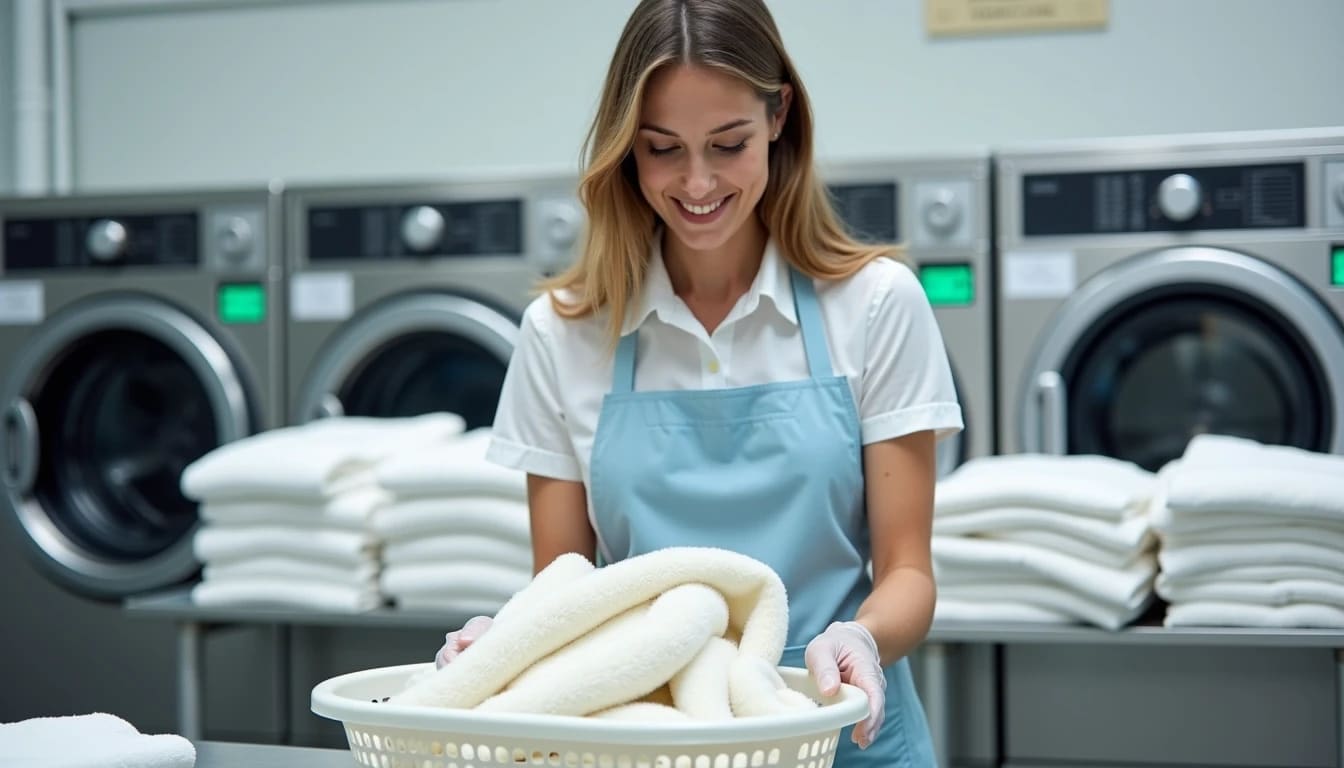
The cleaning approach you choose for garment care depends not only on your personal preference but also on the kind of cleaning your specific garment really needs. Some fabrics respond best to dry cleaning, while others benefit from a gentler, water-based method known as wet cleaning.
But unless you’re in the garment care business, you wouldn’t exactly be expected to know which method is better for your leather jacket, wool blazer, premium dress shirts, or that embellished dress you only wear for special occasions. Most of us drop off our clothes at the cleaners and trust they’ll handle the rest. Still, understanding the difference between these two professional methods can help you make smarter decisions about how your clothes are cared for—and ensure they last longer.
In this post, we clarify the key differences between dry cleaning and wet cleaning—what sets them apart, and when each one should be used.
While dry cleaning has long been the standard for fragile fabrics or structured garments, wet cleaning has recently gained popularity for its eco-friendly methods and gentle touch. Both methods have their own strengths, but using the wrong one can shorten your garment’s lifespan, damage delicate fibers, or even alter its shape and color.
Wet cleaning is exactly what it sounds like: a water-based cleaning method. But don’t confuse it with home washing—this is a professional process. It uses computer-controlled machines, gentle detergents, and specialized finishing equipment to clean and press garments without damaging them. Wet cleaning is especially useful for fabrics that can handle water, like cotton, linen, or synthetics that aren’t heavily structured.
What makes wet cleaning unique is the precision. Everything from the water temperature to the agitation cycle is tailored to the specific fabric, so even "hand wash only" garments come out clean and intact.
Dry cleaning skips the water entirely. Instead, it relies on a chemical solvent—traditionally perchloroethylene (or “PERC”), though many cleaners now use gentler alternatives like hydrocarbon or GreenEarth®. The garments are placed in a dry cleaning machine that washes and dries them in a single cycle using this solvent.
This method is great for preserving the shape, texture, and quality of delicate fabrics or structured pieces. It’s also highly effective at lifting oil-based stains, which water can’t remove.
| Feature | Wet Cleaning | Dry Cleaning |
|---|---|---|
| Cleaning agent | Water + mild detergent | Chemical solvent (no water) |
| Process | Computer-controlled, gentle | Solvent immersion and extraction |
| Eco-friendliness | High—no toxic chemicals | Varies by solvent used |
| Stain removal | Great for water-based stains | Excellent for oil-based stains |
| Fabric care | Gentle on washable fabrics | Better for structured or water-sensitive items |
| Odor | Fresh or fragrance free | May retain solvent smell (depending on solvent) |
Wet cleaning is the modern, eco-conscious alternative to dry cleaning, and it's growing in popularity—especially at dry cleaners focused on green services. That said, dry cleaning is still the best choice when it comes to preserving high-end fabrics and detailed garments.
When in doubt? Ask your local dry cleaner to walk you through the best option. A professional cleaner will inspect the fabric, structure, and care label before deciding—and that’s a level of guidance you just won’t get at home.
Wet cleaning is a solid choice when you want your clothes professionally cleaned without using harsh chemicals. It’s especially useful for laundry items that are washable but too delicate—or too important—to trust to your home washer. The process is done by professionals using computer-controlled machines, eco-friendly detergents, and finishing tools that protect the integrity of the fabric from start to finish.
This method is also ideal for casual wear, washable work clothes, and any garment that doesn’t have a lot of internal structure (like padding, interfacing, or ornate trims). More local dry cleaners now offer wet cleaning because it meets the demand for safer, greener alternatives without compromising results.
If you want to avoid the chemical smell or solvent exposure of traditional dry cleaning, just ask if they offer professional wet cleaning. A reputable dry cleaner will let you know if your garment is a fit for it—and if not, they’ll explain why.
Dry cleaning is the right choice when your clothes need to be cleaned but can’t handle water without shrinking, warping, or losing their shape. It’s designed for garments made from delicate, structured, or water-sensitive fabrics that could be damaged in a regular wash. The solvent-based process gently removes stains and odors without causing the fiber distortion water sometimes creates.
Dry cleaning is also your best solution when time is tight. Many dry cleaners offer same-day dry cleaning for urgent items, making it a convenient option when you need your clothes cleaned and ready fast—without sacrificing quality.
To get the best and most comprehensive garment care, rely on Elite Cleaners, where your clothing receives professional attention from start to finish. For over 20 years, we’ve proudly served the communities of Fayetteville, Johnson, and Springdale, providing convenient, reliable, and affordable Dry Cleaning Service that makes life simpler for our clients. Whether you need a quick Wash and Fold Laundry Service or specialized care for delicate fabrics, our team handles every item with expertise and precision.
Visit us at:
Fayetteville
81 S. Church Ave. Fayetteville, AR 72701
Phone: 479-575-9499
Springdale
1528 W. Sunset Springdale, AR 72762
Phone: 479-751-9819
You can also reach us any time at info@elitecleanersnwa.com—we’re happy to help!